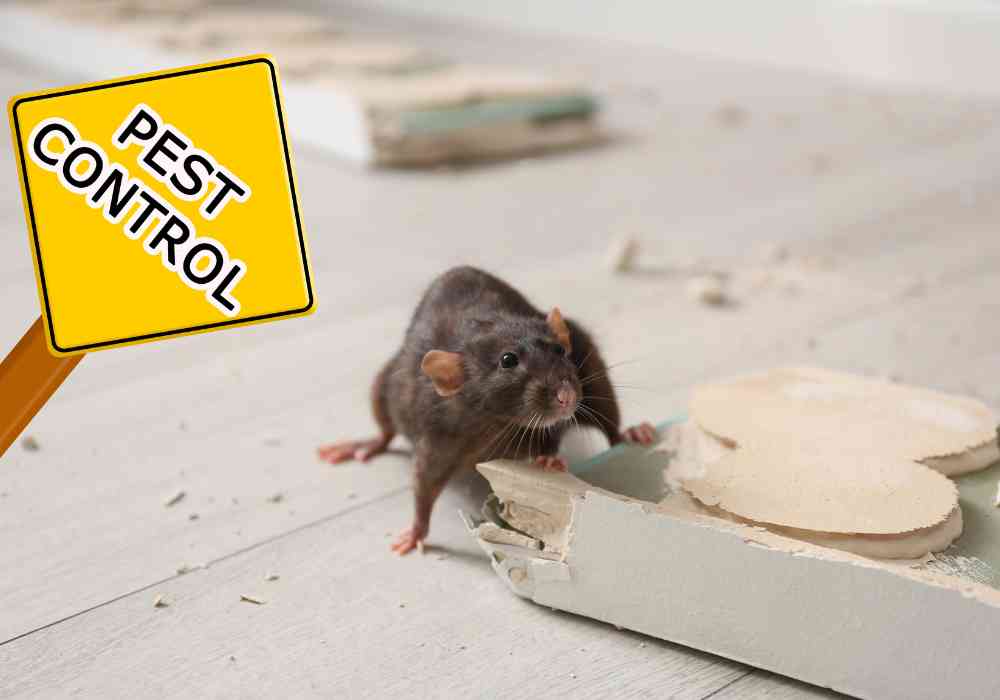
Dealing with a mouse infestation in your home can be a frustrating and overwhelming experience. These pesky rodents can cause extensive damage to your property, contaminate your food, and pose a health risk to you and your family. Fortunately, there are ways to get rid of mice and prevent future infestations.
In this article, I will explore the effectiveness of pest control in getting rid of mice. We will look at traditional pest control methods, professional pest control services, and integrated pest management as approaches to deal with mouse infestations. I will also provide tips for maintaining a mouse-free home.
Key Takeaways:
- A mouse infestation can cause extensive damage to your property, contaminate your food, and pose a health risk.
- Pest control can effectively eliminate mice from your home.
- Traditional pest control methods, professional pest control services, and integrated pest management are effective approaches to control mouse infestations.
- Maintaining good hygiene practices and sealing entry points are key to preventing future mouse infestations.
Understanding Mouse Behavior
Before we can effectively control a mouse infestation, it’s crucial to understand the behavior of these small rodents. Mice are nocturnal creatures, typically active at night while humans are asleep. They are excellent climbers and can easily access homes through small openings or gaps around pipes, vents, and foundations. Once inside, they tend to create nests in warm and secluded areas like attics, basements, and wall voids.
One common sign of a mouse infestation is the presence of droppings, which can accumulate quickly and are typically found near food sources. Mice also leave behind small teeth marks on items like food packages, paper, and even electrical wiring, which can lead to serious damage to a home’s electrical system and present a fire hazard.
Another sign of a mouse infestation is hearing scratching or scurrying sounds within walls, ceilings, or floors. Mice are quick and agile and can easily move around undetected. If you suspect a mouse infestation, it’s important to act quickly to prevent the problem from getting worse.
Traditional Pest Control Methods for Mice
When it comes to mouse infestations, traditional pest control methods are often the first line of defense for homeowners. There are a few basic approaches that fall into this category: mouse traps and poison bait.
Mouse traps are a classic method of rodent control that have been used for centuries. There are different types of traps available, such as snap traps, glue traps, and live traps. They work by attracting mice with bait and then trapping them once they take the bait. This method can be effective, but it requires some patience and skill to set up the traps correctly and dispose of the rodents.
Poison bait is another option that can be effective in controlling a mouse population. These products contain toxic substances that are designed to kill the rodents when they ingest them. There are two main types of poison bait: anticoagulants and non-anticoagulants. Anticoagulant baits kill mice by causing them to bleed internally, while non-anticoagulant baits work by causing neurological damage. Poison baits can be dangerous if not used correctly and can also have unintended consequences, such as secondary poisoning of other animals.
While traditional pest control methods can be effective in dealing with a small mouse infestation, they may not be sufficient for larger or more complex problems. In addition, they can have some limitations and potentially harmful effects, making it essential to explore other options.
Professional Pest Control for Mice
While DIY methods for mouse extermination can be effective, they often fall short when dealing with persistent infestations. This is where professional pest control companies come in.
Most pest control companies have the expertise and experience to identify the extent of the infestation, locate the nests and entry points, and use safe and effective methods for eliminating the mice. They often employ a combination of methods such as traps, baits, and sealants to prevent future infestations.
When hiring a pest control company, it’s important to choose a reputable and licensed provider. Look for online reviews and recommendations from friends or family to ensure you’re getting quality service.
Professional pest control services may come at a higher cost than DIY methods, but the benefits of a mouse-free home are worth it. Not only will you have peace of mind, but you’ll also avoid the potential health risks and property damage caused by mice.
Overall, if you’re dealing with a persistent mouse infestation that DIY methods can’t seem to fix, it’s time to consider a professional pest control service. With their expertise and safe methods, you can trust them to get rid of the mice and prevent future infestations.
Integrated Pest Management for Mice
Integrated pest management (IPM) is a holistic approach to pest control that focuses on prevention, monitoring, and control. It is an effective strategy for controlling mice and preventing future infestations.
To prevent mice from entering your home, it is important to seal all entry points. This includes gaps around doors and windows, holes in walls, and gaps around pipes and cables. Rodent-proofing measures such as installing door sweeps, sealing cracks and holes, and installing mesh screens can go a long way in reducing the risk of a mouse infestation.
Another key aspect of IPM is regular inspection and monitoring. This involves checking for signs of mouse activity such as droppings, gnaw marks, and nests. Early detection can help prevent a minor problem from becoming a major infestation.
IPM also incorporates the use of traps and baits as part of a targeted approach to control mice. Snap traps, glue boards, and live traps are effective in catching mice and are safer than poison baits, which can pose a risk to pets and children if not used carefully.
In addition to these measures, maintaining a clean and hygienic environment is crucial. Removing food sources and storing food in sealed containers can help prevent attracting mice into your home.
Overall, IPM provides a comprehensive and sustainable approach to mouse control. By reducing the risk of infestations through prevention and ongoing monitoring, and using targeted control methods, homeowners can effectively manage mouse problems and maintain a mouse-free home.
Tips for Maintaining a Mouse-Free Home
Preventing a mouse infestation starts with taking proactive measures to keep them out of your home. Here are some practical tips for mouse prevention:
- Seal entry points: Mice can enter your home through even the tiniest cracks and holes. Check for gaps around doors, windows, and pipes, and seal them with caulk or steel wool.
- Maintain cleanliness: Mice are attracted to food and garbage, so it’s important to keep your home free of crumbs and clutter. Store food in airtight containers and dispose of trash regularly.
- Eliminate nesting sites: Mice like to build nests in cluttered areas, so keep your home tidy and organized. Declutter your basement, attic, and garage, and store items in plastic bins.
- Use mouse repellents: Some natural repellents, like peppermint oil and mothballs, may help keep mice away. However, keep in mind that they may not be effective in severe infestations.
- Call a professional: If you suspect a mouse infestation, it’s best to call a professional pest control company. They can identify entry points, eliminate the infestation, and help you implement long-term prevention measures.
Maintaining a mouse-free home requires ongoing effort and vigilance. By implementing these tips and practicing good hygiene practices and home maintenance, you can minimize the risk of a mouse infestation.
Tips for Maintaining a Mouse-Free Home
To ensure that your home stays free from mice, it is important to take appropriate precautions and follow basic hygiene practices. Here are some tips to help you maintain a mouse-free environment:
1. Seal Entry Points
It’s crucial to identify and seal all possible entry points where mice can gain access to your home. This includes holes, cracks, pipes, and gaps in walls, doors, windows, and roof vents. Using caulk, steel wool, or wire mesh to seal these openings can help to prevent mice from entering your home.
2. Practice Good Hygiene
Food and garbage are the primary attractants for mice. Therefore, it’s essential to maintain clean and hygienic surroundings. Ensure that all food items are stored in airtight containers. Dispose of garbage regularly and keep trash cans away from your home. Keep your kitchen, dining, and storage areas clean, dry, and free from clutter.
3. Regular Home Maintenance
Regularly cleaning and maintaining your home can prevent mice from nesting or hiding in unused areas. This includes vacuuming, dusting, and sweeping floors, as well as wiping down surfaces regularly. Additionally, ensure that your yard and garden are well-maintained and free from debris and clutter, which can also attract mice.
4. Ongoing Vigilance
While the above measures can help to prevent mice infestations, it’s important to remain vigilant and proactively monitor your home for signs of mouse activity. Regularly inspect your premises, paying close attention to areas where mice are more likely to hide, such as crawl spaces, attics, and basements. If you suspect a mouse infestation, take immediate steps to seek professional pest control help.
Conclusion
Getting rid of mice requires a multi-faceted approach that combines various methods of pest control, including traps, baits, and professional extermination services. Maintaining a mouse-free home involves taking proactive measures to prevent infestations and maintaining good hygiene practices. By following the tips outlined in this article, you can keep your home free from mice and maintain a healthy and safe living environment.
FAQ
Q: Can pest control effectively get rid of mice?
A: Yes, pest control can effectively eliminate mice from a home. Professional pest control services have the expertise and experience to handle mouse infestations and use safe and effective methods to exterminate them.
Q: What are the signs of a mouse infestation?
A: Some common signs of a mouse infestation include droppings, gnaw marks on furniture or walls, urine odor, scampering noises, and evidence of nesting materials or shredded paper.
Q: What traditional pest control methods can be used to get rid of mice?
A: Traditional pest control methods for mice include using mouse traps and poison bait. These methods can be effective, but they may also have limitations and require ongoing maintenance.
Q: Why should I hire professional pest control for mouse extermination?
A: Hiring professional pest control services for mouse extermination ensures that the problem is handled by experts who know the most effective methods. They use safe and proven techniques to eliminate mice and offer long-term solutions.
Q: What is integrated pest management (IPM) for mice?
A: Integrated pest management is an approach that combines various methods to control mice effectively. It involves prevention measures, such as rodent-proofing and sanitation, along with the use of traps and baits.
Q: How can I maintain a mouse-free home?
A: To maintain a mouse-free home, it is essential to practice good hygiene by keeping food stored properly, sealing entry points, and regularly cleaning and decluttering. Ongoing home maintenance and vigilance are crucial in preventing reinfestation.
- Does Flea Treatment Kill Lice? - September 8, 2023
- Does Flea Treatment Kill Mites? - September 8, 2023
- How to Put Flea Treatment on a Dog? - September 8, 2023






